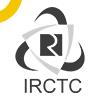Air India Denies Forcing Families to Sign Forms After AI171 Crash

News Synopsis
Air India is facing backlash over allegations that it pressured families of victims from the June 12 AI171 crash in Ahmedabad into signing complex legal documents to receive interim compensation. The crash tragically claimed 261 lives, prompting scrutiny from both legal experts and grieving families.
Air India’s Denial: ‘Unsubstantiated and Inaccurate’
In response to the claims, Air India has issued a firm rebuttal.
“It has come to our notice that allegations have been made against Air India, claiming that families of the deceased in the AI171 accident are being forced to sign papers disclosing their financial dependency to the deceased, in an attempt to slash compensation payments. Air India categorically rejects these allegations and refutes them as both unsubstantiated and inaccurate."
The airline clarified that the questionnaire was designed to help expedite interim compensation and not to reduce the payouts.
“Air India has been making considerable efforts to process payment of interim compensation (also referred to as advance compensation) as soon as possible, in order to meet the immediate financial needs of affected family members, with the first payments having been made within days of the accident."
About the Compensation Forms
According to Air India, the form includes a section asking families if they were “financially dependent” on the deceased, marked with a “yes” or “no.” The airline claims this is necessary to identify rightful recipients of interim payments.
“Air India cannot process these payments in an information vacuum… Air India believes this is an entirely fair and necessary question in order for us to process payments to those most in need of assistance.”
Legal Concerns Raised by Aviation Expert
Aviation lawyer Peter Neenan, a partner at UK-based Stewarts law firm, has voiced strong objections to the process, calling it “ethically outrageous.” Neenan, who has previously worked on MH17 and MH370 litigations, alleged that families were being misled.
“Families were put in crowded, overheated rooms and told to complete lengthy questionnaires without legal advice or proper explanation,” Neenan said. “They were made to believe they wouldn’t receive compensation without these forms. That’s false, and it’s unethical.”
Legal Implications of the Questionnaire
Neenan emphasized that the form contains complex legal questions which could affect future claims.
“These are questions with serious legal implications,” he warned. “Without representation, families could unknowingly limit the compensation they’re legally entitled to potentially costing them millions.”
He further claimed that some families were approached at their homes by Air India representatives—an accusation the airline has categorically denied.
Air India’s Clarification and Actions
“We are doing everything we can to ensure compensation is processed quickly and smoothly,” a spokesperson said. “The questionnaire is intended to help determine rightful beneficiaries. It was made as simple as possible, and liaison officers have been assigned to assist families with logistics, accommodation, and funeral arrangements.”
The airline also reiterated that interim compensation payments began within days of the tragic incident and denied making unsolicited home visits to victims’ families.
Legal Warning and Continued Dispute
Neenan continues to advise families not to complete the forms without independent legal counsel.
“Air India should be ashamed. These families are at their most vulnerable, and instead of compassion, they’re being handed paperwork that could be used against them later.”
Conclusion
As Air India deals with the aftermath of the devastating AI171 crash that claimed 261 lives, it is under increasing public and legal scrutiny over its compensation approach.
The airline has strongly denied allegations of coercing families into signing legal documents, insisting that the questionnaires are designed only to ensure rightful disbursement of interim compensation.
However, legal experts like Peter Neenan argue that these forms, when presented without adequate explanation or legal counsel, could unknowingly limit the victims' families’ rights to full and fair compensation.
This clash of narratives has ignited a wider debate around ethics, transparency, and empathy in post-tragedy corporate response. At the heart of the issue lies the need for sensitivity and accountability, especially when families are dealing with immeasurable loss.
As questions continue to be raised, the AI171 case stands as a critical reminder that humanitarian responsibility must never be sidelined in favor of administrative expediency or legal convenience.
You May Like









